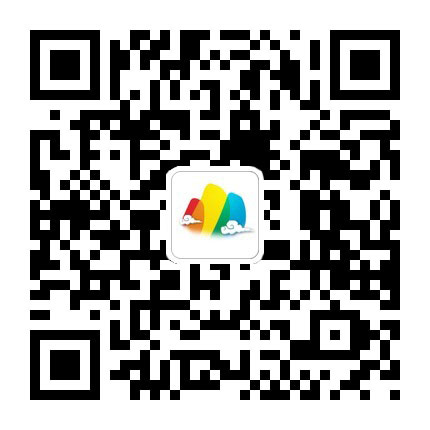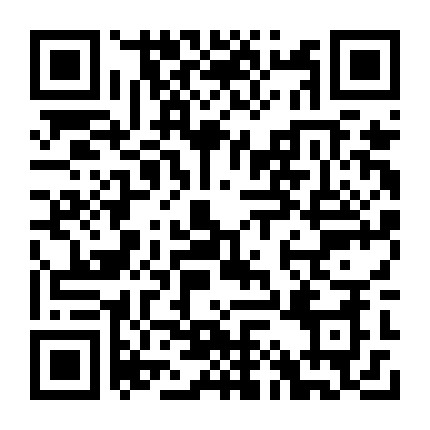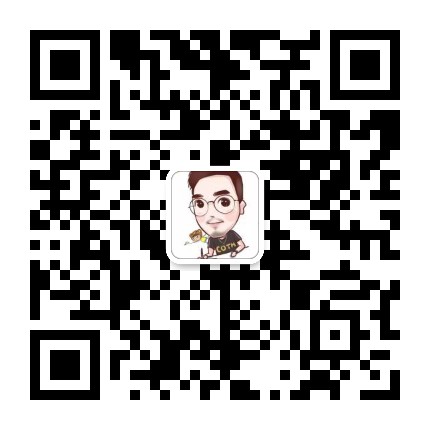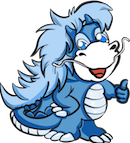人教版_英語(yǔ)_期末_六年級(jí)下冊(cè)_復(fù)習(xí)資料
- 2015-06-13 11:27:00
- 尹巖 原創(chuàng)
- 9651
| 小升初復(fù)習(xí)知識(shí)點(diǎn) |
| |
| 動(dòng)詞的過去式的構(gòu)成規(guī)則有: ① 一般直接在動(dòng)詞的后面加ed如:worked , learned , cleaned , visited ②以e結(jié)尾的動(dòng)詞直接加d:如 lived , danced , used ③以輔音字母加y結(jié)尾的動(dòng)詞要改y為i再加ed(此類動(dòng)詞較少) 如:study – studied carry – carried worry – worried (注意play、stay不是輔音字母加y,所以不屬于此類) ④雙寫最后一個(gè)字母(此類動(dòng)詞較少)如:stopped
動(dòng)詞的ing形式的構(gòu)成規(guī)則: ① 一般的直接在后面加上ing , 如:doing , going , working , singing , eating ② 以e 結(jié)尾的動(dòng)詞,要先去e再加ing , 如:having , writing ③ 雙寫最后一個(gè)字母的(此類動(dòng)詞極少) 如:running , swimming , sitting , getting |
| 句型專項(xiàng)歸類 : 1、肯定句:是指用肯定的語(yǔ)氣來陳述的句子, 如:I’m a student. She is a doctor. He works in a hospital. There are four fans in our classroom. He will eat lunch at 12:00. I watched TV yesterday evening.
2、一般疑問句:必須用“yes”,或“no”來回答。 ?Are you a student? Yes, I am / No, I’m not. ?Is she a doctor? Yes, she is. / No, she isn’t. ?Does he work in a hospital? Yes, he does. / No, he doesn’t. ?Are there four fans in our classroom? Yes, there are. / No, there aren’t. ?Are you going to buy a comic book tonight? Yes, I am. / No, I am not. (Yes, we are. / No, we aren’t.) ?Will he eat lunch at 12:00? Yes, I will. / No, I will not(won’t). ?Are they swimming? Yes, they are. / No, they aren’t. ?Did you watch TV yesterday evening? Yes, I did. / No, I didn’t.
3、特殊疑問句:以特殊疑問詞(what , where , who , which , when , whose , why , how等)開頭引導(dǎo)的句子. 此類句子應(yīng)該問什么就答什么,不能用“yes 、no”來回答。如: ?What is this? It’s a computer. ?Where are you going? I’m going to Beijing. ?Who played football with you yesterday afternoon? Mike. ?Which season do you like best? Summer. ?When do you usually get up? I usually get up at 6:30. ?Whose skirt is this? It’s Amy’s. ?Why do you like spring best? Because I can plant trees. ?How did you go to Xinjiang? I went to Xinjiang by train. |
| 七:完全、縮略形式:
I’m=I am he’s=he is she’s=she is you’re=you are there’s=there is they’re=they are can’t=cannot don’t=do not doesn’t=does not isn’t=is not aren’t=are not let’s=let us won’t=will not I’ll=I will wasn’t=was not
|
| 八:與字母相關(guān)的題型 ( 注:五個(gè)元音字母是 Aa Ee Ii Oo Uu ) 1.將所給字母的大小寫寫在四線格上 Hh Rr Xx Gg Mm Uu Zz Ff Qq Ii 2.寫出下列字母的左鄰右舍。 1.( ) Hh ( ) 2.( ) Bb ( ) 3.( ) Ll ( ) 4.( ) Rr ( ) 5.( ) Qq ( ) 6.( ) Ww ( ) 3.用小寫字母抄寫下列單詞。 1.ROOM( ) 2.UNDER( ) 3.PLEASE( ) 4.PICTURE( ) 5.WHERE( ) 6.TWINS( ) 7.EXCUSE( ) 8.HOW( ) 9.CAKE( ) 10.SMALL( ) 4.將全是元音字母的那一組圈起來 1. a c e 2. i e o 3. v u k 4. e u I 5. J B I 6. E T V 7. E I O 8. A U E 5.寫出與所給單詞發(fā)音相同的字母(大小寫)。 1.bee ( ) 2.sea ( ) 3.tea ( ) 4.are ( ) 5.why ( ) 6.you ( ) |
| |
| ?形容詞(adj.): u big大的 small小的 long長(zhǎng)的 tall高的 short短的;矮的 uyoung年輕的 old舊的;老的 strong健壯的 thin瘦的 uactive積極活躍的 quiet安靜的 nice好看的 kind和藹親切的 ustrict嚴(yán)格的 smart聰明的 funny滑稽可笑的 tasty好吃的 usweet甜的 salty咸的 sour酸的 fresh新鮮的 favourite最喜愛的 uclean干凈的 tired疲勞的 excited興奮的 angry生氣的 uhappy高興的 bored無聊的 sad憂愁的 utaller更高的 shorter更矮的 stronger更強(qiáng)壯的 older年齡更大的 younger更年輕的 bigger更大的 heavier更重的 longer更長(zhǎng)的 thinner更瘦的 smaller更小的 better更好的 higher更高的 ugood好的 fine好的 great很好的 heavy 重的 new新的 ufat胖的 happy快樂的 right對(duì)的 hungry饑餓的 cute逗人喜愛的 ulittle小的 lovely可愛的 beautiful漂亮的 colourful色彩鮮艷的 upretty漂亮的 juicy多汁的 healthy健康的 cheap便宜的 uexpensive昂貴的 tender嫩的 helpful有幫助的 ill有病的 uhigh高的 easy簡(jiǎn)單的 proud驕傲的 sick有病的 |
| 介詞(prep.): in 在…里 on 在…上;在…時(shí)候 under 在…下面 near 在…的旁邊 behind 在…后邊 next to 與…相鄰 over 在……上面 in front of 在……前面 |
| ?動(dòng)詞(v.): play(.ed)玩;踢 swim(swam)游泳 skate滑冰 fly(flew)飛 jump跳 walk走 run(ran)跑 climb爬 fight(fought)打架 swing(swung)蕩 eat(ate)吃 turn轉(zhuǎn)彎 sleep(slept)睡覺 like像,喜歡 have(had)有;吃 buy(bought)買 take(took)買;帶 live居住 teach(taught)教 go(went)去 study(studied)學(xué) learn學(xué)習(xí) sing(sang)唱歌 dance跳舞 row劃 do(did)做 do homework做作業(yè) do housework做家務(wù) watch TV看電視 read(read) books讀書 cook the meals做飯
ride(rode) a bike騎自行車 play the violin拉小提琴 collect stamps集郵 meet(met)見面 welcome歡迎 thank謝謝 love愛 work工作 drink(drank)喝 taste嘗 smell聞 feed(fed)喂養(yǎng) shear剪 milk擠奶 look看 guess猜 help幫助 pass傳遞 show展示 use使用 clean打掃 open打開 close關(guān)上 put放 paint繪畫 tell(told)告訴 kick踢 bounce反彈 ride(rode)騎 stop(stopped)停 wait等 find(found)尋找到 drive(drove)駕駛 fold折 send(sent)寄 wash洗 shine照耀 become變成 feel(felt)感覺到 think(thought)思考 meet(met)遇見 fall(fell)落下 leave(left)離開 wake(woke) up醒來 put on穿上 take off脫掉 hang up掛起 wear(wore)穿 go home回家 go to bed上床睡覺 play computer games玩電腦游戲 get off下車 read a magazine讀雜志 go to the cinema去看電影 go straight向前直走 |
| ?數(shù)詞(numbers): one一 two二 three三 four四 five五 six六 seven七 eight八 nine九 ten十 eleven十一 twelve十二 thirteen十三 fourteen十四 fifteen十五 sixteen十六 seventeen十七 eighteen十八 nineteen十九 twenty二十 thirty三十 forty四十 fifty五十 sixty六十 seventy七十 eighty八十 ninety九十 forty-two四十二 hundred百 one/a hundred and thirty-six一百三十六 first第一 second第二 third第三 fourth第四 fifth第五 eighth第八 ninth第九 twelfth第十二 twentieth第二十 thirtieth第三十 fortieth第四十 fiftieth第五十 sixtieth第六十 seventieth第七十 eightieth第八十 ninetieth第九十 fifty-sixth第五十六 |
| |
| 六年級(jí)下冊(cè) 1. ---I’m 11 years old. --- I’m 12. I’m one year older than you. 我12歲,比你大一歲。 2. You’re taller than your brother. 你比你的弟弟高。 3. I’m 160 cm tall. He’s 159 cm tall. 我身高160厘米,他身高159厘米。 4. ---Which monkey do you like? 你喜歡哪只猴子?--- I like the yellow one. 5. ---Which monkey is stronger? 哪只猴子更強(qiáng)壯? ---The brown monkey is stronger. 棕色的那只。 6. I think the little monkey is only 40cm tall. 我想那只小猴子只有40厘米高。 7. His tail is longer. 它的尾巴更長(zhǎng)。 8. ---What’s the matter, Mike? 邁克,你怎么了? ---I feel sick. I have a fever. 我生病了,我有點(diǎn)發(fā)燒。 9. ---How do you feel? 你感覺怎么樣? ---I feel sick. 我感覺生病了。 10. ---How does Amy feel? 艾米感覺怎么樣? ---She’s tired. 她感覺很疲勞。 11. I am excited. 我太激動(dòng)了。 12. I failed the math test. 我數(shù)學(xué)考試不及格。 13. I’m sorry to hear that. 聽到那件事我很難過。 14. ---What did you do last weekend? 上周末你做了什么? --- I played football. 我踢足球了。 --- Did you read books? 你看書了嗎?--- Yes, I did.是的,我看了。 15. ---Where did you go on your holiday? 你假期去了哪里? ---I went to Xinjiang . 我去了新疆。 ---How did you go there? 你怎樣去那里的? ---I went by train. 我坐火車去的。 |
| 六年級(jí)上冊(cè) 1.-- How do you go to school? 你怎么去上學(xué)? -- I go to school on foot. 我步行去上學(xué)。 2. My home is near. 我家很近。 3. We can go to the bus stop on foot. Then we go to the park by bus. 我們可以先步行到車站,然后坐車到公園。 4. See you then. See you at 2 o’clock. 那再見了,我們兩點(diǎn)見。 5.-Can I go on foot? 我可以步行去嗎- Sure,It’s not far.當(dāng)然可以,并不遠(yuǎn)的. 6. ---Excuse me. Where is the library? 打擾一下,請(qǐng)問一下圖書館在哪里? --- It’s near the post office在郵局附近。 7. ---Is it far from here? 離這里遠(yuǎn)嗎?---No, it’s not far. 不遠(yuǎn)的。 8. ---How can I go to the hospital? 我怎么能到醫(yī)院? ---You can go by the No.301 bus. Ger off at the cinema. 你可以坐301路車過去。在電影院下車, Then walk straight for three minutes. The hospital is on the left. 然后筆直走3分鐘就到了。醫(yī)院在左邊。 9. ---How can I go to the mesume? 我怎么能到博物館? --Go straight for five minutes. Then turn left. 筆直走5分鐘,然后向左拐. 10. ---Where is the post offfice? 郵局在哪里? --- It’s east of the cinema. 在電影院的東邊。 11. ---What are you going to do this evening? 今天晚上你將做什么? ---I’m going to the cinema. 我去看電影。 12. ---When are you going? 你什么時(shí)候去?-- This evening. 今天下午。 13. I want to be a science teacher one day.長(zhǎng)大后我想做一名科學(xué)老師。 14. ---What’s your hobby? 你的愛好是什么? ---I like collecting stamps. 我喜歡集郵。 15. There is a stamp show Sunday. 星期天有一個(gè)郵展。 16. Her father works in a school. 她爸爸在一所學(xué)校工作。 17. ---Does your pen pal live in Shanghai? 你的筆友住在上海嗎? ---No, he doesn’t. He lives in Beijing. 不,他住在北京。 18. ---What does your father do? 你爸爸是做什么的? --- He’s a teacher. 他是老師。 19. How exciting! 太令人激動(dòng)了! 20. ---How does he go to work? 他怎么去上班? ---He goes to work by bike. 他騎自行車去上班。 21. ---Where does the rain come from? 雨是從哪里來的? ---It comes from the clouds. 來自云。 22.First, put the seeds in the soil. Water them. In several days, you can see the sprout. 首先把種子放在泥土里.給它們澆水.幾天之后你就可以看見新芽。 |
| 五年級(jí)下冊(cè) 1. ---When do you get up? 你通常什么時(shí)候起床? --- I usually get up at 6:30. 我通常在6:30起床。 2. --- What do you do on the weekend? 你周末都做什么? ---I often go shopping. 我經(jīng)常購(gòu)物。 ---How about you? What about you? 你呢?∕你怎么樣? ---I often play football. 我經(jīng)常踢足球。 3. ---What’s your favorite season? 你最喜歡哪個(gè)季節(jié)? ---Winter, I like winter. 冬天。∕我喜歡冬 4. ---Which season do you like best? 你最喜歡哪個(gè)季節(jié)? ---Spring. I like spring best. I can fly kites. 春天。我可以放風(fēng)箏。 5. ---Why do you like summer? 你為什么喜歡夏天? ---Because I can swim. 因?yàn)槲铱梢杂斡尽?/span> 6. ---When is your birthday? 你的生日是什么時(shí)候? ---It’s May 4th. 5月4日。 7.--What’s the date? 今天是幾月幾號(hào) --It’s October 1st.今天是10月1號(hào)。 8. ---Is her birthday in June? 她的生日在6月嗎?---Yes. 是的。 9. ---What are you doing? 你正在干什么? ---I’m reading a book. 我正在看書。 10. ---What is your father doing? 你爸爸正在做什么? ---He’s writing an E-mail. 他正在寫一封電子郵件。 11. ---What is she doing? 她正在干什么? ---She is singing. 她正在唱歌。 12. ---What is it doing? 它正在干什么? ---It’s running. 它正在跑步。 13. ---What are they doing?他們正在干什么? ---They’re drinking water. 他們正在喝水。 14. ---Are they catching butterflies? 他們正在捉蝴蝶嗎? ---Yes, they are. 是的,他們正在捉。 15. ---Are you eating lunch? 你們正在吃午飯嗎? ---No, we aren’t. 不,我們沒有。 16. ---Is he taking pictures? 他正在拍照嗎? ---Yes, he is. 是的,他正在拍。 17. ---Is she writing a report? 她正在寫一個(gè)報(bào)告嗎? ---No, she isn’t. 不,她沒有 |
| 五年級(jí)上冊(cè) 1. ---Who’s your art teacher? 你的美術(shù)老師是誰(shuí)?--- Mr Wu. 吳老師。 2. ---What’s he like? 他看起來怎么樣? ---He’s very kind. He’s short and thin. 他很善良。他又矮又瘦。 3. ---Is she strict? 她很嚴(yán)格嗎?---Yes, she is. 是的,她很嚴(yán)格。 4. ---What day is it today? 今天星期幾?---It’sMonday. 今天是星期一。 5. ---What do you have on Mondays? 星期一你們有什么課? ---We have English, science and P.E. 我們有英語(yǔ)課,科學(xué)課和體育課。 6. ---What do you do on Saturdays?星期六你做什么? ---I often do my homework. 我通常做作業(yè)。 7. ---What would you like for lunch? 午餐想吃什么? ---I’d like some tomotoes and mutton. 我想吃一些西紅柿和羊肉。 8. ---What do you have for lunch today? 今天的午飯你吃了什么? ---I have eggplant and tomotoes. 我吃了茄子和西紅柿。 9. ---What’s your favourite food? 你最喜歡的食品是什么? ---Fish. It’s tasty. 魚。味道很好。 10. I don’t like grapes. They’re sour. 我不喜歡葡萄,它們很酸。 11. ---Are you helpful at home? 你在家樂意幫忙嗎? ---Sure. Yes.當(dāng)然是的。 12.--What can you do? 你會(huì)做什么? --I can sweep the floor. 我會(huì)拖地板。 13. Mother goat is ill. 山羊媽媽病了。 14. This is my new bedroom. 這是我的新臥室。 15.-Can you do housework? 你會(huì)做家務(wù)嗎? -No, I can’t.不,我不會(huì)做。 16. There is a big closet and a new air-conditioner. 這里有一個(gè)大衣櫥和一臺(tái)新空調(diào)。 17. There’re blue curtains. 有藍(lán)色的窗簾。 18. I love my new room very much. 我非常喜歡我的新房間。 19. The trash bin is behind the door. 垃圾桶在門后面。 20.--What’s your room like? 你的房間時(shí)怎么樣的? --There’s a bed, a closet and a desk. 有一張床,一個(gè)衣櫥和一張桌子。 21.-Is there a river in the park? 公園里有小河嘛-Yes, there is.是的,那里有。 22. I like my village. 我喜歡我的村莊。 23.-Are there any bridges in your village? 你的村莊里有橋嗎? -No, there aren’t. 不,那里沒有。 24. The water is clean. The air is fresh. The sky is blue. The clouds are white.水很清澈,空氣很清新,天是藍(lán)色的,云朵是白色的。 |
| 四年級(jí)下冊(cè) 1.-Where is the canteen? 餐廳在哪里? -It’s on the first floor. 它在一樓. 2. This is the teacher’s office. 這是教師辦公室。 3. That is my classroom. 那是我的教室。 4.-Do you have a library? 你們有圖書館嗎?-Yes. 有的。 5. This way, please. 這邊請(qǐng)。 6.-Is this the library? 這是圖書館嗎?-Yes, it is. 是的,它是. 7.-Is that the art room? 那是藝術(shù)教室嗎?-No, it isn’t. 不是。 8.-What time is it? 幾點(diǎn)了?-It’s nine o’clock. 9點(diǎn)。 9. It’s time for English class. 現(xiàn)在是上英語(yǔ)課的時(shí)間了。 10. It’s time to go to school. 上學(xué)的時(shí)間到了。 11. Breakfast is ready. 早餐已經(jīng)準(zhǔn)備好了。 12. I’m ready. 我準(zhǔn)備好了。 13.-Is this your jacket? 這是你的夾克衫嗎? -No, it’s John’s不,那是約翰的。 14. ---What color is it? 它是什么顏色的?---It’s blue藍(lán)色的。 15. ---Whose shirt is this? 這是誰(shuí)的襯衫? ---It’s my brother’s我兄弟的。 16. These are your baby pants. 這些是你嬰兒時(shí)穿的衣服。 They are so small. 好小啊。 17. ---Can I wear my new shirt today? 今天我可以穿新襯衫嗎? ---Yes, you can. 可以,你可以穿。 18. It’s warm/ cold/ hot today. 今天是暖和的寒冷的炎熱的。 19. Those are my shoes. 那些是我的鞋子。 20.-Where are they?它們?cè)谀睦?/span>?-They are on your feet.它們?cè)谀愕哪_上。 21.-What’s the weather like in Beijing? 北京的天氣怎么樣?-It’s rainy.在下雨 22. ---Is it cold? 現(xiàn)在冷嗎? ---No, it’s hot. 不,不冷。 23. ---Can I help you? 我能幫你做點(diǎn)什么? ---Yes, I want that dress. 是的,我想要那條裙子。 24-How much is this dress? 這條裙子多少錢?-It’s ninety yuan. 90元。 25--Are they nice? 它們漂亮嗎?--Yes, they are. 是的,很漂亮。 26. ---How much are they? 它們要多少錢? ---They are thirty-five yuan. 35元。 27-What are they?它們是什么 -They are goats.它們是山羊 28.-Are these/those sheep? 這些/那些是綿羊嗎? -Yes, they are. 是的,它們是綿羊。 29.-How many cows do you have? 你有多少頭牛?-One hundred. 100頭。 30.-How many horses are there? 那邊有多少匹馬?-Twelve. 12匹。 |
| 四年級(jí)上冊(cè) 1.--What’s in the classroom? 教室里有什么? -- A board, two lights, many desks and chairs. 一塊寫字板,兩盞電燈,很多桌子和椅子。 2. We have a new classroom. 我們有一個(gè)新教室。 3. ---Let’s clean the classroom. 讓我們一起打掃新教室。 ---Good idea. 好主意。 4. ---What color is it? 它是什么顏色的? ---It’s black and white. 黑色和白色。 5. Let me clean the window. 我來擦窗戶。 6. ---My schoolbag is heavy. 我的書包很重。 ---What’s in it? 里面是什么? 7. He has short black hair and big eyes. 他有黑短的頭發(fā),大眼睛。 8. ---What’s his name? 他叫什么名字? ---His name is Zhang Peng. 他叫張鵬。 9. ---What’s her name? 她叫什么名字? ---Her name is Amy. 她叫艾米。 10. She likes music. 她喜歡音樂。 11. ---Is this your bedroom? 這是你的臥室嗎? ---Yes, it is是的,它是。 12. ---Is she in the living room? 她在起居室嗎? ---No, she isn’t. 不,她不在。 13. Where are the keys? 鑰匙在哪里? 14. ---Are they on the table? 它們?cè)谧雷由蠁幔?/span> ---No, they aren’t. 不,它們不在。 15. ---What would you like for dinner? 你晚飯想吃什么? ---I’d like some fish and vegetables. 我想吃魚和蔬菜。 16.--How many people are there in your family?你們家有幾口人? --Three. 3口。 17. ---Who are they? 他們是誰(shuí)? ---My parents and me. 我父母和我。 18. ---What’s your father? 你爸爸是做什么的? ---He’s a doctor.他是醫(yī)生。 19. ---What’s your mother? 你媽媽是做什么的? ---She’s a teacher. 她是老師。 |
| 三年級(jí)下冊(cè) 1. ---Where are you from? 你來自哪里? --- I’m from America. 我來自美國(guó)。 2. --- Who’s that woman? 那位女士是誰(shuí)? ---She’s my mother. 她是我的媽媽。 3. --- Who’s that man? 那位男士是誰(shuí)? ---He’s my father. 他是我的爸爸。 4. ---How many kites can you see? 你能看見多少只風(fēng)箏? ---I can see 12.我能看見12只。 5. ---How many crayons do you have? 你有多少支油畫棒? ---I have 16. 我有16支。 6.--Do you like peaches? 你喜歡桃子嗎?--Yes, I do. 是的,我喜歡。 7.--Do you like oranges? 你喜歡橘子嗎?--No, I don’t. 不,我不喜歡。 8. ---Where is my car? 我的小汽車在哪里? ---It’s under the chair.它在椅子下面。 9.--Look at the elephant! 看那只大象-- Wow! It’s so big. 哇!它好大。 10. It has a long nose and a short tail. 它有一個(gè)長(zhǎng)長(zhǎng)的鼻子,一條短短的尾巴。 11. It has small eyes and big ears.它有小小的眼睛,大大的耳朵。 |
| 三年級(jí)上冊(cè) 1. ---What’s your name? 你的名字是什么? --- My name is Chen Jie. 我的名字是陳潔。 2. --- This is John.這是約翰。 ---Nice to meet you. 見到你很高興。 3. ---How are you? 你好嗎? ---I’m fine, thank you. 我很好。謝謝。 4.--Let’s paint. 讓我們一起畫畫吧。--Great. 太好了。 5. ---Look! I have a rabbit. 看!我有一只兔子。---Cool. 真酷! 6. ---May I have a look? 我能看一下嗎? ---Sure. Here you are. 當(dāng)然可以,給你。 7. I like hamburgers. 我喜歡漢堡包。 8. ---Have some French fries. 吃一些薯?xiàng)l吧。 ---Thank you. 謝謝。 9. ---Can I have some chicken? 我可以吃一些雞肉嗎? --- Sure. Here you are當(dāng)然可以,給你。 10. ---How old are you? 你幾歲了? ---I’m 9. 我9歲。 11. ---How many balloons? 有多少只氣球? ---Four. 4只。 |
測(cè)試試卷下載:[人教版小升初英語(yǔ)試卷一]
測(cè)試試卷下載:[人教版小升初英語(yǔ)試卷二]
測(cè)試試卷下載:[人教版小升初英語(yǔ)試卷三]
測(cè)試試卷下載:[人教版小升初英語(yǔ)試卷四]
測(cè)試試卷下載:[人教版小升初英語(yǔ)試卷五]
測(cè)試試卷下載:[人教版小升初英語(yǔ)試卷六]
測(cè)試試卷下載:[人教版小升初英語(yǔ)試卷七]
測(cè)試試卷下載:[人教版小升初英語(yǔ)試卷八]
測(cè)試試卷下載:[人教版小升初英語(yǔ)試卷九]
測(cè)試試卷下載:[人教版小升初英語(yǔ)試卷十]
測(cè)試試卷下載:[人教版小升初英語(yǔ)試卷十一]
測(cè)試試卷下載:[人教版小升初英語(yǔ)試卷十二]
測(cè)試試卷下載:[人教版小升初英語(yǔ)試卷十三]
QQ群號(hào):278078985


關(guān)注智慧山微信公眾號(hào)(zhihuishan2013)后,在公眾號(hào)里回復(fù)以下關(guān)鍵字,即可得到相應(yīng)資源!
公開課、作文、復(fù)習(xí)、試卷、知識(shí)點(diǎn)、活動(dòng)、拼音、字母、鐘表、看圖寫話、故事、雙語(yǔ)故事、成語(yǔ)、常識(shí)、APP、語(yǔ)文、數(shù)學(xué)、英語(yǔ)、百家姓、三字經(jīng)、唐詩(shī)三百首、自助查詢、超級(jí)口算
- 兒童故事
- 教育資源
- 小學(xué)語(yǔ)文
- 小學(xué)英語(yǔ)
- 滬教版牛津英語(yǔ)
- 滬教版英語(yǔ)(12版三起點(diǎn))
- 2012版人教英語(yǔ)(一起點(diǎn))
- 2012版人教英語(yǔ)(三起點(diǎn))
- 2012版人教英語(yǔ)(三起點(diǎn)精通)
- 2013版人教英語(yǔ)( 三起點(diǎn))
- 2014版人教英語(yǔ)(三起點(diǎn))
- 北京版英語(yǔ)(一起點(diǎn))
- 北師大版英語(yǔ)
- 北師大版英語(yǔ)(一起點(diǎn))
- 冀教版英語(yǔ)
- 廣州版英語(yǔ)
- 快樂英語(yǔ)
- 新蕾快樂英語(yǔ)
- 劍橋少兒英語(yǔ)
- 外研社英語(yǔ)(一起點(diǎn))
- 外研社英語(yǔ)(三起點(diǎn))
- 小學(xué)數(shù)學(xué)
- 資源下載
- 專家講座
- 智慧山微課
- 少兒英語(yǔ)
- 專項(xiàng)復(fù)習(xí)
- 各科教材
- 課外讀物
- 育兒博客
- 書籍推薦
- 胎教音樂
- 經(jīng)典兒歌
- Scratch編程
- 一年級(jí)新生
- 家長(zhǎng)課堂
- 心理準(zhǔn)備
- 習(xí)慣培養(yǎng)
- 能力鍛煉/學(xué)習(xí)用品
- 經(jīng)驗(yàn)分享
- 家長(zhǎng)困惑
- 小學(xué)入學(xué)指南
- 幼小銜接群
- 飲食健康
- 學(xué)齡前
- 兒童電影
- 成長(zhǎng)故事
- 學(xué)習(xí)寶典
- 幼小銜接
- 古詩(shī)文
- 影視動(dòng)畫
- 科學(xué)小實(shí)驗(yàn)
- 精選課程
- 書法比賽專用
- 首頁(yè)課程介紹
- 小學(xué)指南
- 智慧山活動(dòng)
- 說明
- 家庭教育
- 曬飯—一早一晚
- 兒童編程
- 認(rèn)知階段Scratch圖形化編程
- 理解階段Python人工智能語(yǔ)言
- 運(yùn)用階段C++及信息學(xué)競(jìng)賽
- code.org作業(yè)答案
- code.org作業(yè)視頻講解
- 編程網(wǎng)站
- python入門課作業(yè)答案
- python1(上)作業(yè)答案
- python1(下)作業(yè)答案
- Scratch入門課作業(yè)答案
- 作業(yè)解析
- Scratch相關(guān)資源
- python2(上)作業(yè)答案
- Scratch Level 1作業(yè)答案
- python2(下)作業(yè)答案
- Python3(上)作業(yè)答案
- Scratch Level 2作業(yè)答案
- 國(guó)家政策及比賽
- 2022年P(guān)ython寒假課
- 2022年Scratch寒假課
- 編程網(wǎng)站
- 智慧山圖書館
- 小升初
- 英語(yǔ)學(xué)習(xí)
- 智慧家庭教育





